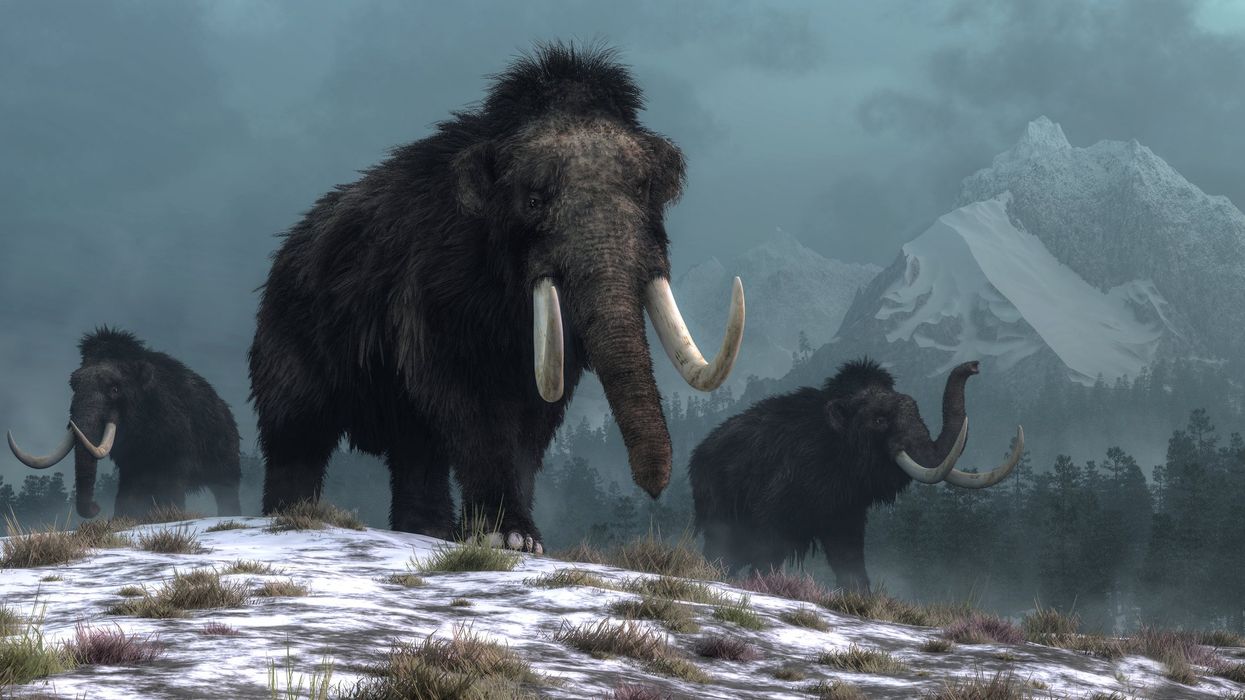
Daniel Eskridge/Getty

Around the last ice age, the woolly mammoth began to disappear from the East Asian tundra. Scientists disagree on whether overhunting by our ancestors or climate change led to its final extinction. However, even though small populations survived as recently as 4,000 years ago, the time of this fur-covered elephant has reached its end. Or has it?
A Texas-based company, Colossal Laboratories & Biosciences, aims to resurrect the woolly mammoth in the next few years. The company also plans to perform this Lazarus trick on other extinct species, including the Tasmanian tiger and the dodo. Colossal announced Series B financing of $150 million, bringing the company's total funding haul to $225 million.
Researcher Dr. George Church and entrepreneur Ben Lamm founded the company in late 2021. Lamm previously established Hypergiant, an AI software company for the military; Church is a respected scientist considered one of the founders of the field of genomics, a biology offshoot focused on the mapping and editing of genomes.
For the better part of a decade, Church has been obsessed with creating a woolly mammoth. There was even a breezy book by Ben Mezrich in 2017, "Woolly," chronicling his adventures with his wife, Dr. Ting Wu, through Harvard and Siberia, trying to get funding for this zany idea. Mezrich’s hyperbolic prose painted a brilliant scientist driven to obsession on a quixotic quest to bring the animals back from the dead. He now has the money and company to make his dream come true. Paris Hilton and self-help guru Tony Robbins were some of the first investors.
This isn’t the first time Dr. Church has made headlines. He’s previously had to explain why he received funding from Jeffrey Epstein and why his genetics-based dating app wasn’t, well, eugenics.
Making claims to the media and producing results are very different things in cutting-edge science. However, $200 million is a substantial investment; the technology is plausible on paper. The company plans to use CRISPR gene editing techniques to splice frozen mammoth genes onto modern elephant genes, creating a hybrid.
According to Dr. Church and others, the actual plan is to reintroduce these animals to thwart climate change. Because of rising global temperatures, the arctic tundra is thawing, and herds of these animals could break up the permafrost and cause a rebirth of CO2-capturing grasslands. Logistical problems aside, millions of zombie mammoths terraforming Russia seems rather aspirational. The question should be whether this is a good idea.
There are a lot of ethical questions about using de-extinction to revive animals. Is it cruel to use elephants in this way? What would happen to the current flora and fauna in the ecosystems the company hopes to colonize? What about indigenous Siberian populations?
According to the company's website, “At Colossal we are driven by the forces of virtue and moral good – working for a healthier planet, a healthier human populace and a pursuit of that which we recognize as goodness, compassion and honest, pure science.” Fortunately, no scientific horrors have occurred while pursuing the greater good.
Investors are likely much more interested in the technology behind editing genes than they are in recreating a Jurassic Park filled with dodo birds. The Intercept has done some excellent reporting on the fact that the CIA, through its venture capital firm In-Q-Tel, was an early investor. It’s unclear what the CIA hopes to gain through this partnership.
You might wonder why the CIA has a venture capital company or would partner with Paris Hilton and Tony Robbins to fund an eccentric scientist trying to breed woolly mammoths to fight climate change. Unfortunately, this requires figuring out why the news is an algorithmic Mad Libs program that has gone off the rails.
Dr. Ian Malcolm would undoubtedly have some thoughts:
- YouTube youtu.be